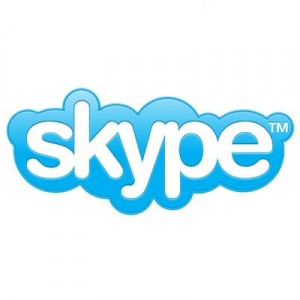Archive for May, 2011
Tuesday, May 24th, 2011

Earlier this year I have the pleasure to meet the fabulous Tai Goodwin on Twitter. Tai is the founder of the site Launch While Working. We “met” each other when we were both participating in the fantastic Wednesday #smallbizchat that is organized by Melinda Emerson (@smallbizlady). Tai and I really bonded over a unique trait that we share and that is we are launching businesses while we work full-time jobs. Tai has an awesome and super descriptive term for this growing phenomenon and she discusses it in detail during our KikScore interview of her.
1. Tell us about Launch While Working and who you focus on serving?
Launch While Working is a resource site specifically built to service the needs of “Employedpreneurs” like myself. Employedpreneurs are full-time employees who are also part-time entrepreneurs.
2. What prompted you to launch Launch While Working?
In my first side business, I worked as a career coach. The majority of the clients I attracted sought me out because they wanted to pursue something they were passionate about. In most cases their passion led them to starting their own business. I began helping them use on line marketing and social networking strategies to launch and grow their business. I began to see a need for a community of people who were launching while working. Many of the business coaches I worked with seem to be under the impression that “serious” entrepreneurs were those that quit their job to work full-time in their business. But there’s a huge trend of people that need to keep their day job (for benefits or as a funding source), and are still committed to the vision of launching their own business. The idea was born from there.
3. If you had 2 lessons learned from your business that you could pass on to others, what are those lessons?
Systemize and invest in professional development. Having systems in place will help keep you sane when you are running a business on half of the time that full-time business owners have. Having systems in place for follow-up, client intake, customer service, data retention, bookkeeping, etc…are key to maintaining a professional image and high quality service.
Investing in professional development like conferences, high quality mastermind groups, and coaching is one of the best ways to meet people who are on the same journey as you. In addition to the learning from these experiences, I’ve come away with some amazing connections which have led to incredible opportunities.
4. What is Launch While Working focusing most of its energy on this year?
I work from a three-legged stool approach: The first leg is launching the site, so I’ll be doing lots of promotion to create awareness of the community. The second leg is self-publishing the Employedpreneur book. And the third leg of the stool this year is running the first Launch Circle – it’s a mix between a mastermind group and group coaching for employedpreneurs.
5. Based on your experience as social media strategist, what do you see as 2 new trends for small business?
Blogging for business is becoming important as small business owners and solopreneurs realize the value of building an online customer base. Being visible on social networking platforms is important but once people find you, you need to have a content rich home base (your blog) that can establish your credibility and give prospects a chance to uncover the value you provide.
Another trend, specifically for service based businesses is creating opportunities for passive income through infoproducts. Infoproducts are basically a way to package your expertise and sell it to clients via ebooks, video, audio, etc…It’s a must have for solopreneurs who want to break free from the limitations of one-to-one business models. The one-to-many (one infoproduct many customers) model means that you can generate revenue without adding more hours to your work week.
6. If you could describe the nature or spirit of your business as any movie or movie character, what movie/movie character would it be and why?
Ultimately, Launch While Working is about ambitious professionals who believe that a) work has to be about more than money or titles, and b) working for someone else in corporate America limits their ability to live their vision. It’s about those of us who are willing to take a risk and make an investment of time, money and energy top pursue our passion on our terms. I think the movie that best captures that spirit is Jerry McGuire.
7. If the small business community could have one evangelist, advocate or spokesperson that could make a massive impact for small business, who would you pick and why?
Just one – that’s tough. I think Anita Campbell, founder of Small Biz Trends. She’s a role model for me in that I hope the Launch While Working site evolves into a resource for employedpreneurs, like her sites are a resource for small business owners. Small Biz Trends and its affiliated sites like BizSugar, offer a wealth of information for entrepreneurs. She has assembled the best and brightest small business experts as contributors who consistently provide high quality content for entrepreneurs.
8. What are the two biggest challenges that you think small business are facing today and how do you suggest that they work to overcome those challenges?
One main challenge that small businesses face is being unwilling to go beyond traditional marketing strategies when it comes to promoting their business. It’s something I call “egocentric” marketing and it sounds like this, “I don’t like Facebook (or another social media marketing tool) so I don’t see the value in having my business there.” This is the starting point for many of my customers. However, the reality is that it doesn’t matter what “they” like, if their customers are on Facebook, or Twitter, they need to find a way to engage them there proactively – or someone else will.
Another challenge that many small businesses face is not being flexible enough to adapt to the changing demands of their customers and needs of the market. While it is important to hold on to your vision, it should never be at the expense of building a sustainable business model. Your business plan whether it is one page or fifty, should be an evolving document that scales to put you in the best possible position to serve your clients and generate revenue.
9. Small businesses are always looking for good sources of information to learn from or share information to help their business. What are some good information sources that you often use?
My favorite sources are Small Biz Trends, Entrepreneur Magazine (online), Social Media Today, Social Media Examiner. In addition I use Twitter filters and Google Alerts to stay tuned into specific key words related to my niche.
10. Do you have any parting thoughts for our readers and the small business community?
I’m learning that one of the key factors to building a successful enterprise is having strategic partners. Having a solid core of online and offline partnerships opens the door for learning, growth and opportunities to reach new audiences. No business (or business owner) is an island.
____________________________________
Thanks Tai for the great interview and fantastic tips. If anyone in our small business community has any questions or comments for Tai, please leave them in the comments.
 Tweet This Post
Tweet This Post
 As cybercriminals become more advanced and efficient, all businesses must recognize and prepare for the imminent threats of online hackers. The issue of cyber-attacks has made its way to the Senate, debating the amount of power the president should have in dealing with cybercrimes (Full story here).
As cybercriminals become more advanced and efficient, all businesses must recognize and prepare for the imminent threats of online hackers. The issue of cyber-attacks has made its way to the Senate, debating the amount of power the president should have in dealing with cybercrimes (Full story here).



 Hey guys! This is Jason and I am a new intern here at Kikscore!
Hey guys! This is Jason and I am a new intern here at Kikscore!








